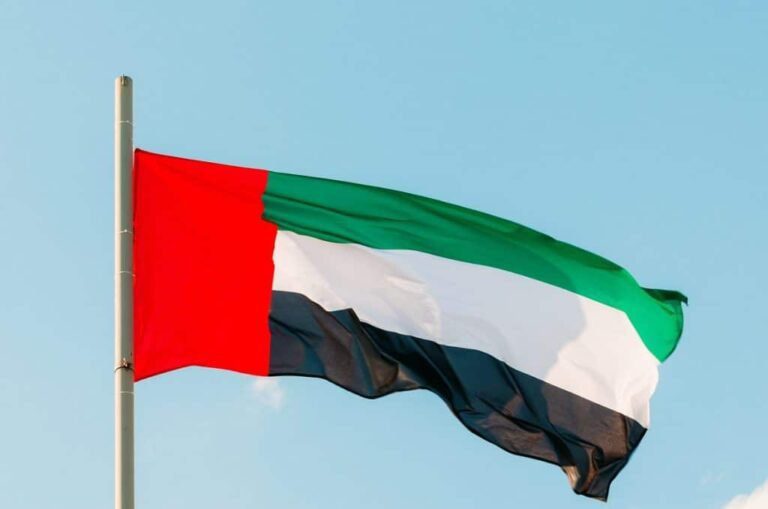As the UAE cements its position as a global business hub, a select group of companies is leading the charge-powering GDP growth, attracting international investment, and shaping the economic future of the Middle East. Spanning sectors such as energy, finance, real estate, technology, and industrial services, these publicly listed giants are not only dominant players locally but are also making a mark on the global stage.Ranked by market capitalization, here are the 10 most valuable companies in the UAE today, and why they matter more than ever.
1. International Holding Company (IHC) Market Cap: AED 894 Billion+ A standout success story, IHC has evolved from a modest holding company in 1998 into one of the most diversified and influential conglomerates in the region. With interests ranging from AI and agriculture to healthcare and infrastructure, IHC epitomizes rapid, strategic growth. Why It Matters:
•Embodies Abu Dhabi’s economic diversification strategy
•Backed by Sheikh Tahnoon bin Zayed Al Nahyan, symbolizing investor confidence
•Subsidiaries like Alpha Dhabi and Multiply Group are major players in their own right With strong liquidity and a bold global investment mandate, IHC is shaping the UAE’s future in strategic industries and venture capital.
2. Abu Dhabi National Energy Company (TAQA) Market Cap: AED 348 Billion+ Known as the UAE’s energy backbone, TAQA operates across power, water, oil and gas, and renewables. It’s playing a pivotal role in the transition to clean energy while maintaining legacy strength. Key Highlights:
•Operations in 11 countries across four continents
•Controls most of Abu Dhabi’s power and water capacity
•Expanding its portfolio in solar and wind energy TAQA reflects how energy companies can lead in sustainability without compromising profitability.
3. ADNOC Gas Market Cap: AED 231 Billion+ As a key entity within the ADNOC Group, ADNOC Gas streamlines the UAE’s gas operations, supplying more than 60% of domestic needs and playing a critical export role. Strategic Significance:
•Supports industrial demand and power generation
•Aligns with national goals of energy security and economic monetization
•One of the region’s largest and most stable utility players post-IPO ADNOC Gas is a cornerstone in the UAE’s long-term energy strategy.
4. Emirates Telecommunications Group (e& – formerly Etisalat) Market Cap: AED 145 Billion+ Transitioning from a telecom operator to a digital and investment powerhouse, e& is redefining what a telecom company can be in the 21st century. Differentiators:
•Presence in 16 countries across MENA and Asia
•Investments in fintech, AI, cloud computing, and digital content
•Partnerships with global tech leaders like Microsoft and Meta e& exemplifies the UAE’s ambition to lead in digital transformation and smart technology adoption.
5. First Abu Dhabi Bank (FAB) Market Cap: AED 140 Billion+ Born from a merger between National Bank of Abu Dhabi and First Gulf Bank, FAB is the UAE’s largest bank by assets and a central figure in the region’s financial evolution. Core Strengths:
•Major financier of sovereign and infrastructure projects
•Leading digital banking transformation and ESG finance in the region
•Preferred partner for institutional and government entities FAB is an indispensable institution driving regional capital flows and innovation in financial services.
6. Emirates NBD Market Cap: AED 120 Billion+ Dubai’s flagship bank, Emirates NBD, is a retail and corporate banking leader with increasing international reach. Strategic Focus:
•Strong foothold in Egypt, Saudi Arabia, and Turkey
•Pioneering AI-powered and mobile-first banking services
•Deeply integrated with Dubai’s urban and economic development With robust fundamentals and forward-thinking leadership, ENBD remains a key player in regional banking.
7. Dubai Electricity & Water Authority (DEWA) Market Cap: AED 120 Billion+ DEWA is Dubai’s primary utility provider and a key player in the Emirate’s clean energy transition, following its landmark IPO in 2022. Role in Dubai’s Growth:
•Supplies power and water to all of Dubai’s infrastructure
•A driving force behind the Dubai Clean Energy Strategy 2050
•Heavy investments in solar power and smart grids For ESG-conscious investors, DEWA represents a unique opportunity to invest in sustainable infrastructure in a high-growth economy.
8. Alpha Dhabi Holding Market Cap: AED 110 Billion+ As an IHC subsidiary, Alpha Dhabi is rapidly scaling across construction, healthcare, real estate, and hospitality. Growth Drivers:
•Key acquisitions including Trojan Holding and ADK Healthcare
•Strong alignment with UAE Vision 2030 objectives
•Expanding into high-growth sectors like wellness and tourism Alpha Dhabi is emerging as a diversified powerhouse in its own right, mirroring IHC’s broader growth playbook.
9. Emaar Properties Market Cap: AED 104 Billion+ From Burj Khalifa to Dubai Mall, Emaar has defined the UAE’s urban identity. It continues to deliver value through its global real estate and hospitality portfolio. Competitive Edge:
•Balanced revenues from real estate, retail, and hospitality
•Expanding footprint across India, Egypt, Saudi Arabia, and Turkey
•Pioneering smart city projects and branded residences Emaar is a benchmark for property development excellence and regional resilience.
10. ADNOC Drilling Market Cap: AED 76 Billion+ As the drilling arm of ADNOC, this company is essential to the UAE’s upstream oil and gas capabilities and expansion plans. Investment Appeal:
•Operates over 100 rigs across onshore and offshore sites
•Strong dividend potential with a capital-efficient business model
•Poised for growth as ADNOC scales production ADNOC Drilling is a strategic asset within the UAE’s fossil fuel landscape, offering reliable returns amid evolving global energy dynamics.
These companies are more than just market cap leaders – they are the engines driving the UAE’s transformation into a knowledge-based, diversified economy. As Vision 2030 gains momentum and foreign capital increasingly targets the Gulf, these firms are not only shaping the nation’s economic future but also setting benchmarks for emerging markets worldwide.


